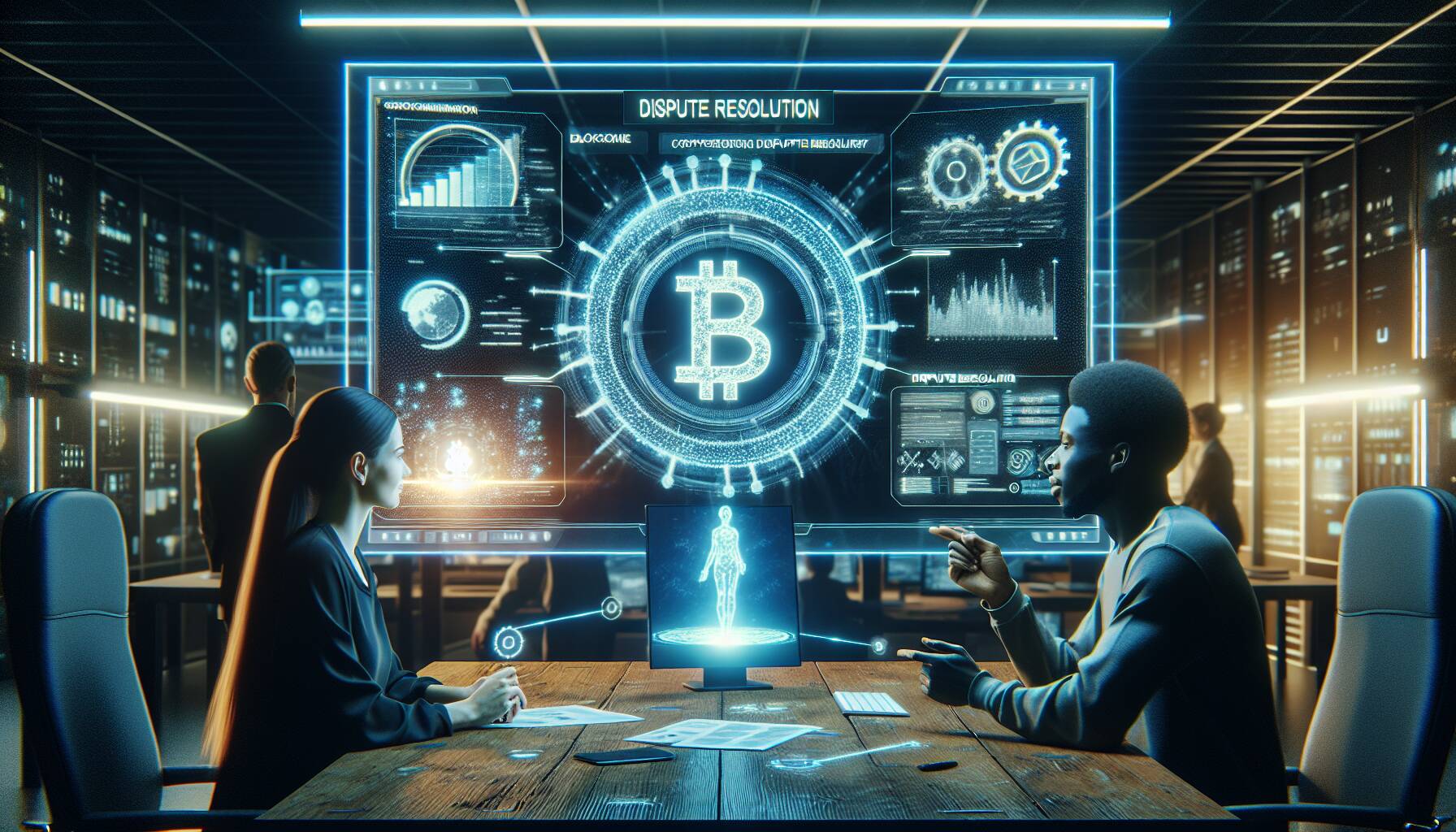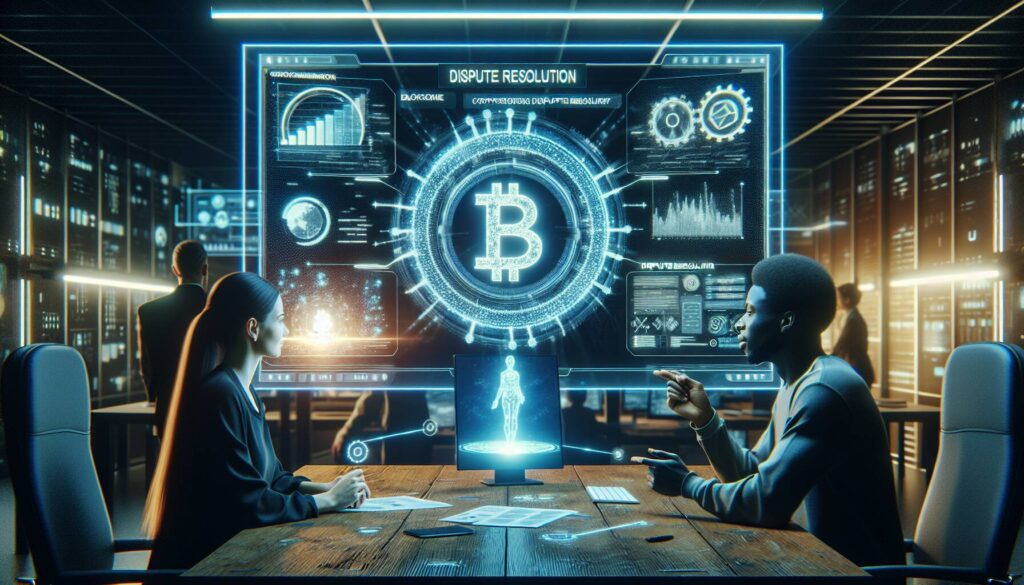In a landscape where the resolution of disputes and decision-making processes often bog down in lengthy legal battles, a new player named GenLayer is stepping in to revolutionize how conflicts are managed in the world of cryptocurrency. This innovative project, led by Albert Castellana and his team at YeagerAI, aims to establish an on-chain arbitration system that seamlessly integrates with existing crypto protocols, creating a neutral platform for resolving disagreements and making impartial decisions.
Imagine a situation where prediction markets, like Polymarket, generate controversial outcomes. With GenLayer, users will have the opportunity to appeal these results through a synthetic court system powered by a network of validators. Castellana describes it as a “global synthetic jurisdiction” that operates continuously, providing efficient and cost-effective resolutions. As artificial intelligence continues to evolve, the demand for such arbitration systems is expected to grow, especially with the rise of AI agents capable of executing complex tasks autonomously.
“We’re basically building a global synthetic jurisdiction that has an embedded court system that doesn’t sleep, that’s super cheap, and that’s super fast,” says Castellana.
Utilizing advanced technology, GenLayer incorporates a unique approach to decision-making by linking multiple validators to large language models (LLMs) like OpenAI’s ChatGPT. This layered decision-making process ensures that as more validators participate, the final ruling becomes increasingly accurate—a principle grounded in Condorcet’s Jury Theorem. Each decision typically takes around 100 seconds to reach, allowing for rapid resolution in a space where time is of the essence.
Not only does GenLayer’s architecture aim to streamline operations across different blockchain ecosystems, but it also introduces financial incentives to maintain the integrity of its decision-making process. Validators earn rewards for siding with the majority opinion, thereby encouraging them to provide accurate and unbiased input. With plans for a full launch by the end of the year and a testnet already in place, GenLayer is poised to become a significant player in the future of blockchain technology.

GenLayer: A New Era in On-Chain Dispute Resolution
GenLayer is an innovative crypto project designed to act as a neutral on-chain court system, facilitating timely and unbiased decision-making across various decentralized platforms. Here are the key points regarding its significance and potential impact:
- On-Chain Dispute Arbitration
- Offers a formal way to appeal decisions in scenarios like the controversial settlements of prediction markets.
- Enhances trust and transparency in decentralized decision-making.
- Integration with AI Agents
- Uses AI agents for various tasks including trading, arbitraging, and security monitoring.
- Addresses the complexities of managing numerous autonomous AI agents in crypto markets.
- Synthetic Court System
- Allows various crypto protocols to connect and utilize its arbitration infrastructure without direct competition.
- Utilizes a unique decision-making process involving multiple validators and language models to ensure unbiased outcomes.
- Efficiency in Decision-Making
- Transactions processed quickly—averaging 100 seconds—promotes rapid resolutions compared to traditional legal systems.
- Escalation of appeals allows thorough consideration without prolonged delays.
- Incentives and Validator Dynamics
- Validators are financially motivated to produce accurate decisions while minimizing collusion risk due to anonymity and tight timeframes.
- The system encourages thorough use of different language models to obtain varied and reliable answers.
- Future Impact
- Potential to streamline processes for DAOs and insurance contracts through automated solutions.
- Could redefine trust and accountability frameworks in the growing landscape of decentralized finance.
“We’re basically building a global synthetic jurisdiction that has an embedded court system that doesn’t sleep, that’s super cheap, and that’s super fast.” – Albert Castellana
GenLayer: Redefining Arbitration in the Crypto Space
The digital landscape is ever-evolving, and with the introduction of GenLayer, a groundbreaking crypto protocol, the concept of arbitration in on-chain disputes is being reimagined. Unlike traditional solutions or other blockchain protocols, GenLayer’s approach to dispute resolution leverages artificial intelligence to scale decision-making processes that are rapid and, crucially, impartial. This sets it apart from competitors that often rely on human judgment or are limited by their underlying technology.
For instance, while platforms like Chainlink or Uniswap focus heavily on transaction execution and liquidity, GenLayer offers a dedicated system for conflict resolution, addressing a niche yet crucial need in the ever-growing decentralized finance (DeFi) ecosystem. The ability to appeal decisions and involve increasing numbers of validators ensures greater accuracy and reduces the risk of bias — a significant advantage in contrast to systems that don’t allow for recourse.
However, the complexity of AI integration poses a potential disadvantage. With many different AIs involved in decision-making, concerns might arise regarding the reliability of insights generated. If validators frequently opt for similar models, biases could inadvertently creep into the system. The ongoing need to ensure diverse AI input is paramount; thus, while GenLayer aims to eliminate partiality, it faces the challenge of maintaining a balanced representation of AIs to achieve that goal.
This innovation stands to benefit a wide array of stakeholders, especially those operating within the realms of prediction markets and decentralized organizations. DAOs can significantly streamline their decision-making processes, harnessing GenLayer’s efficient and automated dispute resolution features. Insurance firms, too, can capitalize on its native token system that rewards accurate contributions, thus enhancing trust among users without the overhead of traditional systems.
Conversely, GenLayer’s rapid arbitration process might threaten existing platforms that currently hold monopolies over dispute resolution or insurance contracts. If this system gains traction, it could lead to a decline in users for conventional arbitration services that lack the same agility and innovation. Additionally, the potential for gaming the system, even if minimized, could deter some investors wary of risks associated with algorithmic decision-making.
As AI agents become increasingly commonplace in crypto trading and decision-making, GenLayer is uniquely positioned to navigate this transformative landscape. Its promise of speed, efficiency, and scalability opens up exciting possibilities. But it’s essential for users to remain aware of the hurdles that come with integrating such advanced technologies in an already complex environment.

















